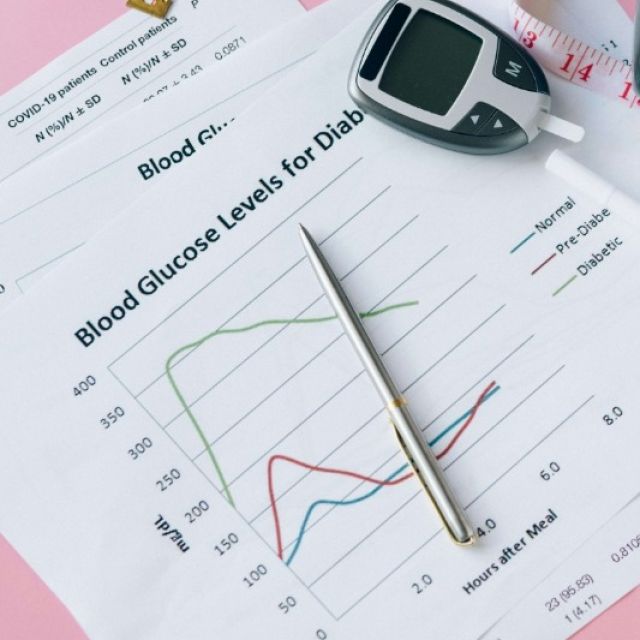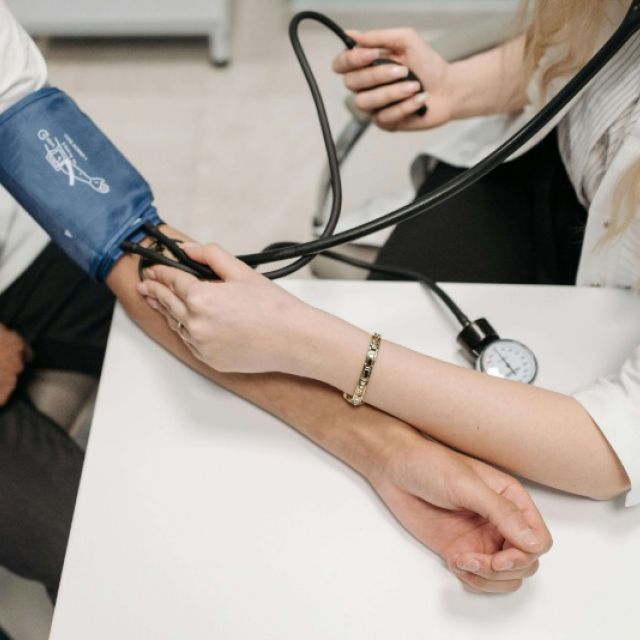








"He who has health, has hope; and he who has hope, has everything."
— Arabian proverb

Cash & Bank Wire Transfer are available
Heart Disease
In the United States, Heart Disease is the number one leading cause of death. Heart Disease encompasses diabetes, high blood pressure, and high cholesterol. It's a narrative that, while daunting, is not destined. Professor Trish has the right health science and has worked in clinical settings for more than 20 years, dedicated to teaching and guiding individuals how to live healthier lifestyles. Her journey is not just about clinical advice; it's about nurturing profound transformations in the lives of those she touches. Professor Trish strives to reach out to each individual with understanding, compassion, and empathy with the agenda to save lives. Her message is clear and heartfelt: change is possible, and it's within your reach. With every word she speaks and every action she takes, Professor Trish seeks to inspire a revolution in health, urging everyone she crosses paths with to embrace the power we hold over our well-being. Professor Trish aims to empower, enlighten, and encourage those who are open to learning, living, and embracing longevity. Before it truly is too late.
Diabetes
Diabetes is a condition that touches the lives of many, weaving its way into the fabric of daily living with grace and resilience required in equal measure. It occurs when the body can't properly use or produce enough insulin, a hormone needed to convert sugar into energy. This imbalance can lead to elevated blood sugar levels, presenting a unique set of challenges, especially for women, who face not only the general risks associated with diabetes but also gender-specific issues, such as gestational diabetes during pregnancy and a potential increased risk for heart disease.
Risk factors for diabetes are multifaceted. Type 2 diabetes includes genetics, age, inactivity, and overweight, with a notable mention by sources like the Harvard T.H. Chan School of Public Health emphasizing the impact of lifestyle and diet. Women also face specific risk periods during their lives, such as pregnancy, which can bring about gestational diabetes, affecting both mother and child's health. The complications related to unmanaged diabetes are significant and include heart disease, kidney damage, and vision issues, underscoring the critical nature of management and care.
When diabetes remains unmanaged, the consequences can be profound, affecting every corner of one's life. Elevated blood sugar levels over time can lead to serious health issues, including nerve damage, vision problems, and an increased risk of heart disease and stroke. The emotional and physical toll of managing diabetes can also be challenging, highlighting the importance of support and care in navigating this journey.
Lifestyle modifications play a crucial role in managing diabetes, with dietary adjustments, regular physical activity, and weight management being key components. These changes, recommended by credible sources such as the Centers for Disease and Prevention, not only help manage diabetes but also improve overall well-being. Embracing these adjustments with patience and self-compassion is essential, as is seeking support from a community that understands the journey. Remember, you're not alone.

Cash & Bank Wire Transfer are available
LaTrish The Professional


LaTrish is a Certified Clinical Exercise Physiologist who has spent over 20 years working with a variety of persons who, including seniors, to regain their strength, balance, flexibility, mobility, and more. She has worked with patients and clients in clinical and medical settings with Dementia, Muscular and Joint Pain, Post-Stroke, Post-Heart Attack, Postpartum, Auto Immune Diseases, Cancer, Parkinson, Multiple Sclerosis, Heart Disease, Diabetes, High Blood Pressure, High Cholesterol, Lupus, COPD and many more conditions.
LaTrish's clinical approach is to listen to her clients, observe signs/symptoms, review labs, and diagnostic reports, consult with physicians if necessary, review medications, review nutrition, conduct a pre-evaluation (both mental and physical), and customize a wellness program to improve and manage their condition.
All therapies, consultations, and exercise programs are provided at the client's current location: In home, rehab, and/or the hospital. LaTrish will work in conjunction with any medical directions given by a patients medical physician.
All therapies and exercise programs include but are not limited to breathing exercises, water aerobics, stretching, manual/hydro advance pain therapy, yoga, weight training, food nutrition, and more. Each program is carefully customized for each individual to progressively decrease symptoms affiliated with their current condition and improve daily function, mobility, and independence.

Cash & Bank Wire Transfer are available
High Blood Pressure
Understanding high blood pressure, or hypertension, is crucial, especially in the context of women's health. This condition occurs when the force of your blood against the walls of your blood vessels is consistently too high. It's often referred to as a "silent killer" because it can be present without any symptoms, yet it affects the heart and blood vessels significantly over time.
The risk factors for high blood pressure are a blend of lifestyle choices and genetic predispositions. These include an unhealthy diet, particularly one high in sodium, lack of physical activity, obesity, tobacco use, and excessive alcohol consumption. For women, there are additional layers to consider, such as the risk increasing with age and potential complications from pregnancy or the use of birth control pills. The Harvard T.H. Chan School of Public Health highlights these factors, emphasizing the importance of awareness and management.
The complications arising from unmanaged high blood pressure are profound. They can lead to heart disease, stroke, kidney damage, and even cognitive decline. For women, there's also an increased risk of developing complications during pregnancy, such as preeclampsia, which can affect both the mother's and the baby's health.
Addressing high blood pressure involves a multifaceted approach. According to sources such as the American Heart Association, treatment can include medication to lower blood pressure to safer levels. However, equally important are lifestyle changes that support heart health. These include adopting a diet rich in fruits, vegetables, and whole grains, engaging in regular physical activity, maintaining a healthy weight, avoiding tobacco, limiting alcohol consumption, and managing stress.
Making these changes can feel overwhelming, but taking small steps toward a healthier lifestyle can have a significant impact. Remember, it's not just about adding years to your life but adding life to your years. Surrounding yourself with a supportive community, whether it's friends, family, or others affected by high blood pressure, can also provide encouragement and understanding on this journey.
Empathy and compassion toward oneself are vital. Each person's journey with high blood pressure is unique, and it's important to approach your path with kindness and patience. Celebrate the small victories, learn from the setbacks, and remember: You're not alone in this.
High Cholesterol
Navigating the complexities of high cholesterol requires understanding, care, and a gentle approach, especially when addressing women's health. High cholesterol means there's an imbalance of fats in the bloodstream, leading to an excess of low-density lipoprotein (LDL) or "bad" cholesterol. This condition often goes unnoticed without symptoms, making regular check-ups essential for early detection and management.
Risk factors for high cholesterol blend lifestyle choices with genetic predispositions. These include an unhealthy diet rich in saturated fats, physical inactivity, smoking, excessive alcohol consumption, and obesity. For women, factors such as menopause can also increase cholesterol levels, as estrogen levels, which help keep cholesterol in check, decline with age. Universities like Harvard Medical School shed light on these aspects, emphasizing the unique risk factors women face regarding high cholesterol.
The complications associated with unmanaged high cholesterol are significant and can impact a woman's health profoundly. When left unchecked, high cholesterol can lead to the buildup of plaques in the arteries, known as atherosclerosis, increasing the risk of heart disease and stroke. These conditions are leading causes of morbidity and mortality worldwide but are particularly concerning for women, who may experience different symptoms and outcomes than men.
Addressing high cholesterol involves a holistic approach that includes medical treatment and lifestyle changes. Medications such as statins may be prescribed to help lower cholesterol levels. However, adopting a heart-healthy lifestyle is equally crucial. This involves eating a balanced diet low in saturated fats and cholesterol, engaging in regular physical activity, maintaining a healthy weight, quitting smoking, and limiting alcohol intake.
The American Heart Association offers comprehensive guides on managing high cholesterol through lifestyle modifications, providing evidence-based recommendations for those seeking to improve their heart health.
Embarking on a journey to lower cholesterol is a deeply personal one, filled with challenges and triumphs. It's important to approach each step with kindness towards oneself, recognizing that progress is made one day at a time. Support from healthcare providers, family, and friends can offer the encouragement and understanding needed to make lasting changes.
In addressing high cholesterol, remember the power of gentle persistence and self-compassion. Each small lifestyle adjustment, each choice made for heart health, is a step toward a longer, more vibrant life.

Cash & Bank Wire Transfer are available
Contact LaTrish today to discuss a complete wellness program for your parents, grandparents, a family member, or friend so that they may receive a gift of "Wellness with Compassion."